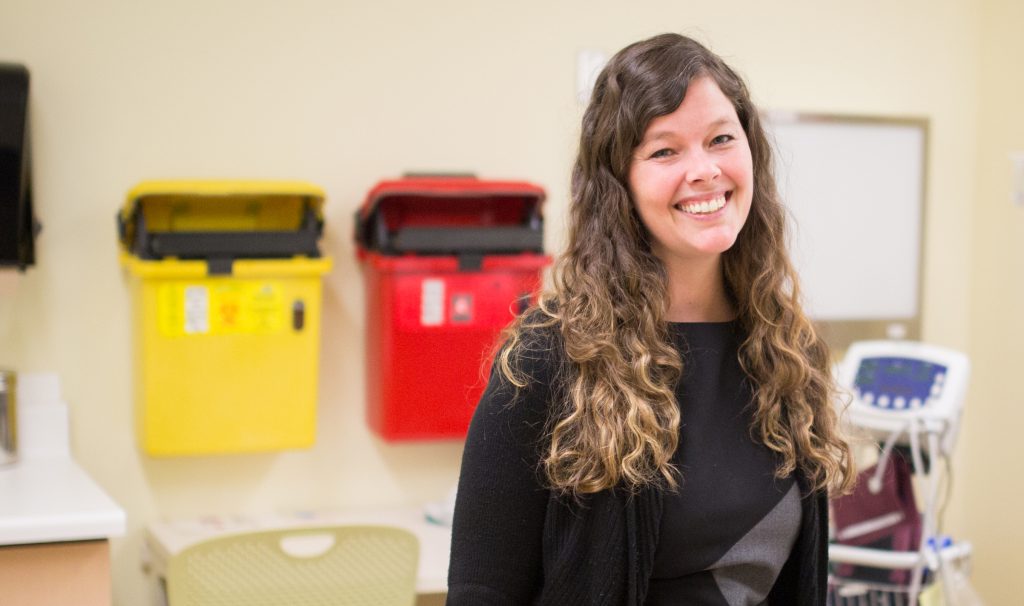Context is key for improving health research among Indigenous peoples

McMaster pediatrician Stacey Marjerrison, along with Chelsea Gabel and grad student Sarah Hyett, outlines considerations that will lead to better research on Indigenous Health.
BY Michelle Donovan
May 22, 2018
Researchers must understand the historical and social context of Indigenous health research, while valuing the unique knowledge, skills and experiences of Indigenous people, in order to conduct meaningful health research, according to an analysis by McMaster researchers in the Canadian Medical Association Journal.
The analysis outlines the history of Indigenous health research in Canada — which in the past involved highly unethical methods that created mistrust and harm — and suggests considerations critical for success.
Examples of egregious medical research projects by non-Indigenous researchers include nutritional experiments in residential schools involving severe caloric or nutrient restrictions, and BCG tuberculosis vaccine trials conducted despite doubts about the vaccine’s safety and effectiveness.
As a result, a range of guidelines were implemented, including the Royal Commission on Aboriginal Peoples, the Canadian Institutes of Health Research Guidelines for Health Research Involving Aboriginal People, and most recently the Tri-Council Policy Statement: Ethical Conduct for Research Involving Humans.

Importantly, these guidelines offer only minimum requirements, and many Indigenous communities and organizations have their own ethics guidelines and processes.
“Engaging Indigenous worldview and values, specific to the group(s) one hopes to collaborate with, is critical to producing research with meaningful findings from participant perspective,” writes author Chelsea Gabel, the Canada Research Chair in Indigenous Well-Being, Community Engagement and Innovation. Gabel is an assistant professor in McMaster’s department of Health, Aging and Society and the Indigenous Studies Program.
“Research with Indigenous Peoples and communities demands thorough and continuous reflection, as well as accountability to participants,” she says.
Gabel co-authored the study with graduate student Sarah Hyett and Dr. Stacey Marjerrison, an assistant clinical professor of pediatrics in the Faculty of Health Science.
When reporting on Indigenous health outcomes, it is crucial to provide context for Indigenous health challenges observed, and highlight strengths, to avoid contributing to stigmatization in wider society, say researchers.
There is a danger, especially in the field of health, of conflating the social problems Indigenous people face as a result of social, economic and political marginalization experienced since colonization, with cultural characteristics of Indigenous Peoples, they write.
To hear more, visit https://soundcloud.com/cmajpodcasts/171538-ana/s-aylAk


